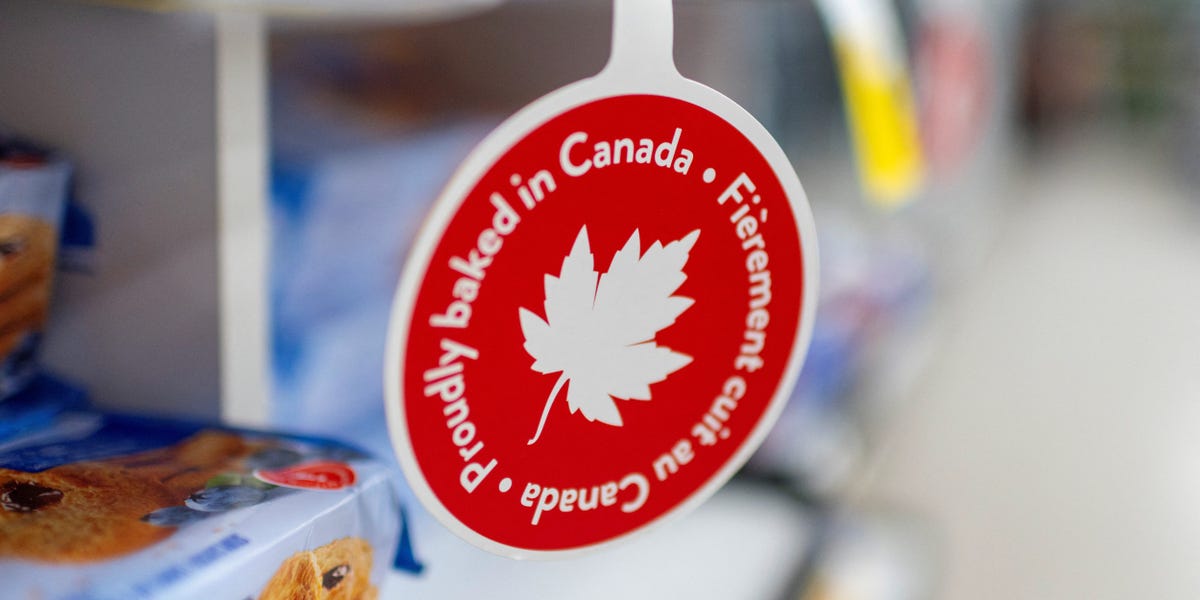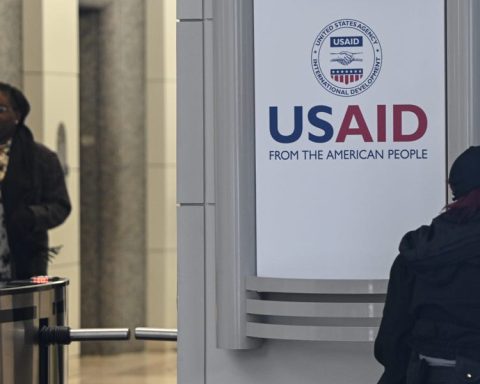Canadian customers are making it clear to US businesses that they will stop purchasing American products. Grocery chains across Canada are beginning to phase out American items and anticipate a decline in sales. This boycott, coupled with retaliatory tariffs, could significantly affect the US agricultural sector.
Businesses in Canada, both large and small, have been increasingly rejecting American goods, starting with nonessential items such as alcohol and expanding to a broader array of food products. Economic experts warn that this could influence various levels of the agricultural supply chain. “Basically, overnight, everything changed, maybe irreparably,” said Alisa Gorokhova, a Quebec resident. She reflected on the morning after the tariff announcements, stating, “There are suddenly ‘made in Canada’ labels on things, and American booze is gone from the shelves.” Gorokhova noted that shoppers are now actively checking product origins and taking the boycott of US goods seriously.
The growing resentment toward American products among Canadians has been fueled by Trump’s repeated imposition and suspension of a 25% tariff on Canadian exports, culminating in a recent 25% tax on Canadian steel and aluminum. Trump has also frequently expressed his desire to make Canada the 51st state of the US and referred to Justin Trudeau, Canada’s then-prime minister, as the “governor.”
Consequently, American businesses are beginning to feel the strain. Ethan Frisch, CEO and founder of Burlap & Barrel, a New York-based public benefit corporation that specializes in fairly sourced single-origin spices, mentioned he has received messages from longstanding Canadian clients stating they would no longer purchase his products due to the boycott. “We’re not really sure how to handle this,” Frisch expressed. “We at Burlap & Barrel did not vote for Trump, and we also import some spices from Canada, so our supply chain is tightly intertwined with the entire tariff situation.” He added, “This could force us to buy less from our partners by introducing an extra layer of risk, which directly contradicts our mission of putting more money into the hands of smaller farmers.”
Major grocery chains in Canada are now highlighting local products in response to patriotic sentiments. Sobeys, the second-largest national food retailer in Canada with around 1,600 stores across 10 provinces, revealed that approximately 12% of its sales came from US-sourced products over the past year. However, in light of their efforts to “find alternatives to US sources over the past 30 days,” that percentage is expected to decrease. Similarly, Metro, which operates approximately 1,000 grocery stores in Quebec, Ontario, and New Brunswick, along with Longo’s, a family-owned chain focusing on the Greater Toronto Area, have launched in-store programs to mark products with prominent Canadian identification. These local products are also being promoted through their websites and newsletters.
According to the latest data from the International Trade Administration, Canada continues to be the largest importer of high-value agricultural products from the US.
Economic and policy experts have indicated to BI that depending on the magnitude and duration of the boycott, the US agriculture sector could suffer, particularly amid the ongoing effort to reduce federal spending. “This is going to hurt the industries here, there’s no doubt about it,” stated Larry Gerston, a public policy and civic engagement professor at San Jose State University. “Whether it will hurt more than a counter tariff will depend on the specificity of the target, the seriousness of the boycott, and how much support the Canadian government provides.”
“Canadians are a very proud people, and they are deeply offended this time,” Gerston added. The current tariffs on China and potential retaliatory tariffs could exacerbate the situation, along with Canadian boycotts.
Jerry Nickelsburg, an economics professor at UCLA Anderson School of Management, pointed out that farmers had received government subsidies during Trump’s first term when faced with retaliatory tariffs from China. However, he noted, “They should not expect that they’ll receive a subsidy this time” under the new directive aimed at cutting government spending. “We can expect a decline in demand for US agricultural products not just from Canada but also from China,” Nickelsburg said. “With falling demand, this will impact both the price and farmers’ income.”







